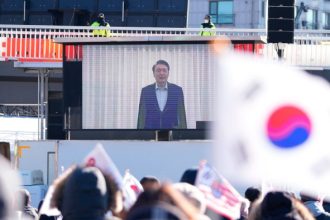Senior doctors in England’s public hospitals have voted to strike over two days next month.
Consultants — equivalent to attending physicians in the U.S. — plan to walk out on July 20 and 21.
These National Health Service doctors will still provide emergency care, but thousands of routine appointments will likely have to be delayed, as other staff are not qualified to cover their specialist roles.
It’s bad news for hospitals, who are already expecting five days of industrial action from junior doctors, who are set to walk out from July 13 to 18.
This “double whammy” of strikes will be a “huge risk” for hospital teams to manage, according to Sir Julian Hartley, who heads industry group NHS Providers.
He called on ministers and union leaders to resolve the dispute and avert the strikes.
“These strikes don’t have to go ahead,” he said in a statement. “There’s still time for the government and the doctors’ unions to settle their differences and find a way through.
“The urgency can’t be overstated. [Hospital] trust leaders want the government and unions to sit down, facilitated by a third party if necessary, to find a way to end strikes.”
Months of industrial action
Healthcare workers across the U.K. have been striking over pay since last December. Union leaders say that salaries have been rising slower than inflation, and argue that better compensation is crucial for a sustainable workforce that can meet the growing health needs of an ageing population.
“July will be the eighth consecutive month of industrial action across the NHS,” Hartley said. “More than 651,000 routine operations and appointments have had to be postponed already since December due to industrial action across the NHS with knock-on delays for many thousands more.”
Government ministers recently offered a pay deal that split different health unions, with nurses and some other staff still holding out for more.
But that action, which saw several multi-day strikes from crucial hospital staff, may well have come to a close. Nurses, who had initially rejected the deal, failed to opt for more strikes in a ballot that also finished Tuesday, leaving just one opposing union with a mandate for walk-outs.
Some ambulance staff who are members of the Unite union can still hold local strikes. But co-ordinated national action is no longer on the table for wider staff groups.
Both junior and senior doctors, however, now have a mandate to walk-out.
Decisive vote for strikes
Next month’s strikes are both being organised by the British Medical Association union, which represents around 173,000 doctors and medical students.
More than 86% of voters opted for strike action in the union’s ballot of consultants, with around 71% of eligible members turning out. In total, nearly 21,000 senior doctors voted “yes.”
The vote gives the union a six-month window to walk-out. If the dispute is not over by that point, leaders will have to hold another ballot to continue action.
Hartley said hospital trusts “understand how strongly doctors feel – the high turnout in the consultants’ vote shows just how strongly – and why they are striking.”
But he added that keeping patients safe and minimising disruptio was “getting harder and more expensive with every strike.”
A spokesperson for the Department of Health and Social Care told the BBC that strikes were “hugely disruptive for patients and put pressure on other NHS staff.”
They added: “We urge the BMA to carefully consider the likely impact of any action on patients.”
Read the full article here





